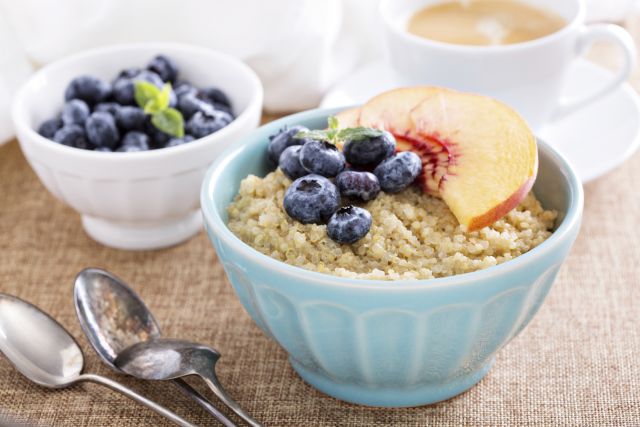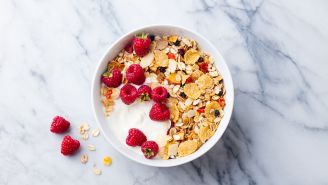Updated on December 16, 2024.
Like an intricate road system, your blood vessels carry blood and its cargo of oxygen and nutrients all over the body. And, just as the surface of a roadway affects how easily vehicles can travel on it, the lining of those blood vessels is crucial to your health.
The interior lining of your blood vessels is a thin membrane called endothelium. It’s made of endothelial cells. These cells have many jobs. They:
- Help your blood vessels relax and contract
- Influence your immune system
- Affect your blood’s ability to clot
Keeping endothelial cells healthy can help ward off heart disease. An impaired endothelium, however, may lead to blood-vessel damage. That damage is clearly observable in people with diabetes. It can pave the way for hardened arteries and heart problems.
One way to support your endothelial health: Eat your oatmeal, or another fiber-rich breakfast. Research suggests that getting plenty of fiber at breakfast is kinder to the lining of your blood vessels than eating a high-glycemic-index (GI) breakfast like processed cereal.
High-glycemic foods, fiber, and endothelial function
What is glycemic index? Simply put, it’s a way to measure how fast a food causes your blood sugar to rise. Processed foods like white bread tend to have higher GI scores. Fiber-rich whole grains like rolled oats tend to have lower GI scores.
Some research has drawn a link between a high-fiber, low-GI breakfast and heart health. In one small 2019 study published in the journal Nutrients, researchers looked at how different breakfasts affected the ability of blood vessels to widen (a good measure of their health). Compared to three other options, a breakfast high in fiber and low on the glycemic index was most beneficial.
For even better endothelial function, try making a fiber-rich, low-GI breakfast part of an overall healthy eating pattern. A 2020 review, also published in Nutrients, found plenty of evidence suggesting the Mediterranean diet is particularly beneficial for your endothelium. It prioritizes high-fiber foods like fruits, vegetables, whole grains, nuts, and beans, as well as healthy fats like olive oil. It also involves eating moderate amounts of fish, poultry, dairy products, and eggs, while keeping red meat and sugary foods to a minimum.
So do yourself a favor—start your day with a high-fiber, whole-grain breakfast. Then, make a delicious lunch and dinner in line with the Mediterranean diet. It could help pave the way to better heart health.







